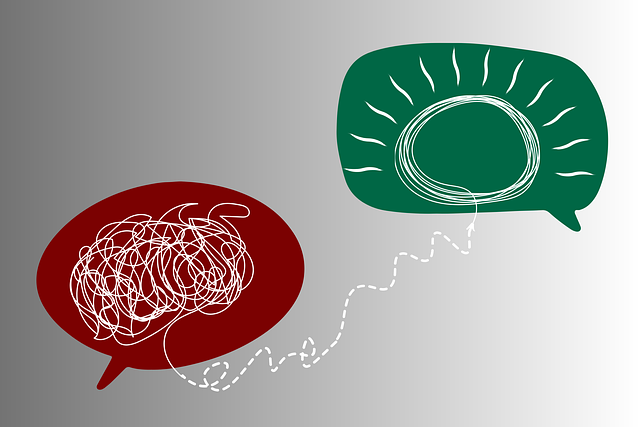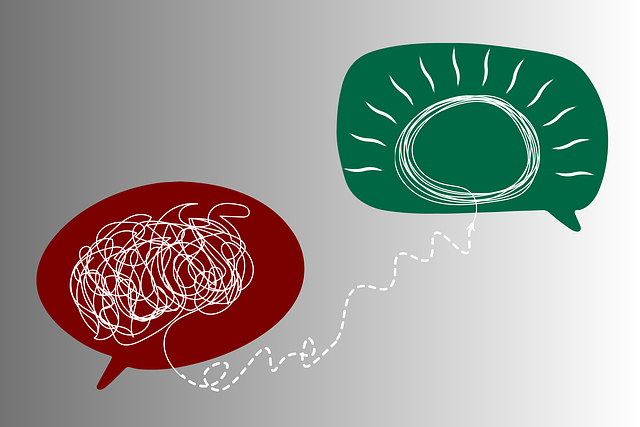Existential Psychotherapy: Unlocking Mental Well-being Through Self-Exploration
Existential psychotherapy is a specialized therapy that guides individuals in discovering meaning and purpose in life by confronting existential anxiety. This approach emphasizes personal freedom, choice, and responsibility, encouraging clients to introspect on existence, identity, and mortality. Through talk therapy, clients gain self-awareness, improve decision-making, and develop a sense of purpose, ultimately enhancing mental health and well-being. By balancing existential exploration with practical coping strategies, therapists help individuals navigate challenges, embrace autonomy, and foster personal growth, leading to improved mental health outcomes.
Existential psychotherapy, a profound approach to mental health treatment, delves into the human condition, emphasizing personal freedom, choice, and meaning. This therapeutic model, distinct from traditional talk therapy, invites individuals to confront existential angst, explore their unique purpose, and embrace life’s challenges. By fostering self-awareness, responsibility for one’s actions, and authenticity, existential psychotherapy empowers clients to lead more fulfilling lives. In this article, we’ll uncover the core principles, techniques, benefits, challenges, and real-world applications of this transformative mental health approach.
Understanding Existential Psychotherapy: A Brief Overview

Existential psychotherapy is a unique approach within the field of mental health psychotherapy, focusing on the individual’s search for meaning and purpose in life. This form of therapy emphasizes personal freedom, choice, and responsibility, encouraging clients to explore their authentic selves and confront existential anxiety. By delving into profound questions about existence, identity, and mortality, it aims to help individuals find a sense of meaning and live authentically.
The core belief is that individuals have the power to shape their lives and that this awareness can be both liberating and intimidating. Through dialogue and introspection, clients are guided to confront their fears, embrace their unique existence, and make conscious choices. This process facilitates personal growth, enhances self-awareness, and promotes a deeper understanding of one’s place in the world, thereby improving overall mental health and well-being.
Core Principles and Concepts in Existential Therapy

Existential psychotherapy is a form of talk therapy that focuses on the individual’s search for meaning and purpose in life, emphasizing personal freedom and responsibility. At its core, this approach posits that people have the ability to define themselves and their lives through their choices, even in the face of difficult circumstances. The therapy explores the human condition, encouraging clients to confront existential fears, anxiety, and the inherent contradictions of existence.
Key concepts include the recognition of mortality, the search for authenticity, and the acceptance of life’s inherent absurdity or meaninglessness. Therapists help individuals navigate their unique existence by fostering a deeper awareness of their thoughts, feelings, and behaviors, allowing them to make choices aligned with personal values. This process aims to enhance mental health and overall well-being by promoting self-awareness, decision-making skills, and a sense of life’s purpose.
The Role of Freedom and Choice in Mental Health

In existential psychotherapy, the concept of freedom and choice is a cornerstone of understanding and enhancing mental health. This therapeutic approach emphasizes that individuals have the power to shape their lives and make authentic choices, which can significantly impact overall well-being. By recognizing and embracing this inherent freedom, clients are encouraged to explore their values, purpose, and meaning in life, fostering a sense of existential aliveness.
The process involves delving into personal experiences, beliefs, and decisions to identify any limiting factors or unexamined lives that might hinder mental health. Through dialogue and introspection, individuals learn to make conscious choices, accept responsibility for their actions, and navigate the complexities of life with greater authenticity. This active engagement in one’s existence promotes resilience, self-awareness, and a profound sense of agency, all of which contribute to improved mental health and overall life satisfaction.
Existential Perspective on Human Existence and Suffering

From an existential perspective, human existence is a complex interplay of freedom and responsibility, meaning, and purpose. This viewpoint in mental health psychotherapy emphasizes that individuals create their own sense of meaning in life through personal choices and actions. According to existential thinkers, suffering often arises from a lack of self-awareness, denial of our mortality, and failure to embrace the inherent freedom and authenticity that define human existence. By confronting these aspects, individuals can foster a deeper understanding of themselves, take ownership of their lives, and find purpose amidst the uncertainties of life.
Techniques and Methods Used by Existential Therapists

Existential therapists focus on helping individuals explore their unique existence, purpose, and meaning in life. They employ a range of techniques to support clients in navigating existential questions and challenges. One key method is encouraging self-reflection through open-ended questions that prompt individuals to confront their personal values, beliefs, and aspirations. This introspective process allows for a deeper understanding of one’s motivations and fears, fostering greater self-awareness.
Additionally, these therapists often utilize techniques like structured discussions, phenomenological analysis, and the exploration of concrete life experiences. By engaging in these methods, clients can gain insights into their relationships with others and their place in the world. The goal is to enhance their sense of authenticity and encourage them to embrace personal responsibility for their choices, ultimately promoting a healthier and more fulfilling mental health state.
Benefits and Effectiveness of This Approach for Mental Health Treatment

Existential psychotherapy offers a unique and profound approach to mental health treatment, focusing on individual freedom, choice, and meaning-making. This therapeutic method encourages clients to explore their innermost thoughts, emotions, and experiences in a way that promotes self-awareness and personal growth. One of its key strengths is the ability to help individuals confront existential angst and find purpose, ultimately enhancing their overall well-being.
The effectiveness of this approach lies in its holistic nature, addressing not just symptoms but the underlying causes of distress. By fostering a deeper understanding of oneself and one’s place in the world, existential psychotherapy empowers clients to make sense of their lives, take responsibility for their choices, and develop a stronger sense of authenticity. This can lead to improved coping strategies, increased resilience, and better mental health outcomes.
Common Challenges and Considerations in Practice

Existential psychotherapy, while deeply philosophical and human-centered, faces several common challenges in practice. One primary consideration is reaching individuals who may be reluctant to engage with such introspective work, often due to fear of facing personal truths or a lack of awareness about their mental health needs. This requires therapists to employ creative approaches, like integrating technology for accessibility and comfort, to draw clients into the therapeutic process.
Another challenge lies in balancing the exploration of existential questions with practical strategies for coping. Existential therapy delves into profound themes of life, death, and meaning, which can be overwhelming. Skilled practitioners must navigate these deep conversations while also providing concrete tools and techniques to help clients manage anxiety, depression, or other mental health issues. This integration fosters a balanced approach that addresses both the mind and spirit, enhancing the overall effectiveness of the therapy.
Integrating Spirituality: A Unique Aspect of Existential Psychotherapy

Existential psychotherapy stands out among various therapeutic approaches for its unique integration of spirituality and mental health. Unlike traditional talk therapy that primarily focuses on cognitive and emotional aspects, existential therapy invites clients to explore deeper questions about life, purpose, and meaning. This process encourages individuals to confront their inherent freedom, personal responsibility, and the inevitability of uncertainty, fostering a profound sense of self-awareness.
Incorporating spiritual elements doesn’t mean existential psychotherapy is religious; rather, it recognizes that human beings inherently seek understanding beyond themselves. Therapists facilitate this exploration by creating a safe space for clients to consider their place in the world, connect with their inner values, and embrace the potential for personal growth. This spiritual dimension enhances mental well-being by offering a broader perspective on life’s challenges and triumphs.
Real-World Applications and Examples of Existential Psychotherapy

Existential psychotherapy translates theoretical insights into practical, real-world applications for bettering mental health. Through fostering self-awareness and personal responsibility, this therapeutic approach empowers individuals to confront existential angst, find meaning in life, and make authentic choices. For instance, a person struggling with depression might benefit from exploring their sense of purpose and existence’s inherent meaning, leading to a more fulfilling life perspective.
Another example involves a client dealing with anxiety related to significant life transitions, such as retirement or the loss of a loved one. Existential psychotherapy can help them navigate these changes by encouraging introspection, embracing uncertainty, and cultivating a deeper understanding of their own existential needs and desires. This process enables individuals to adapt more effectively, fostering resilience in the face of life’s challenges and promoting overall mental well-being.
